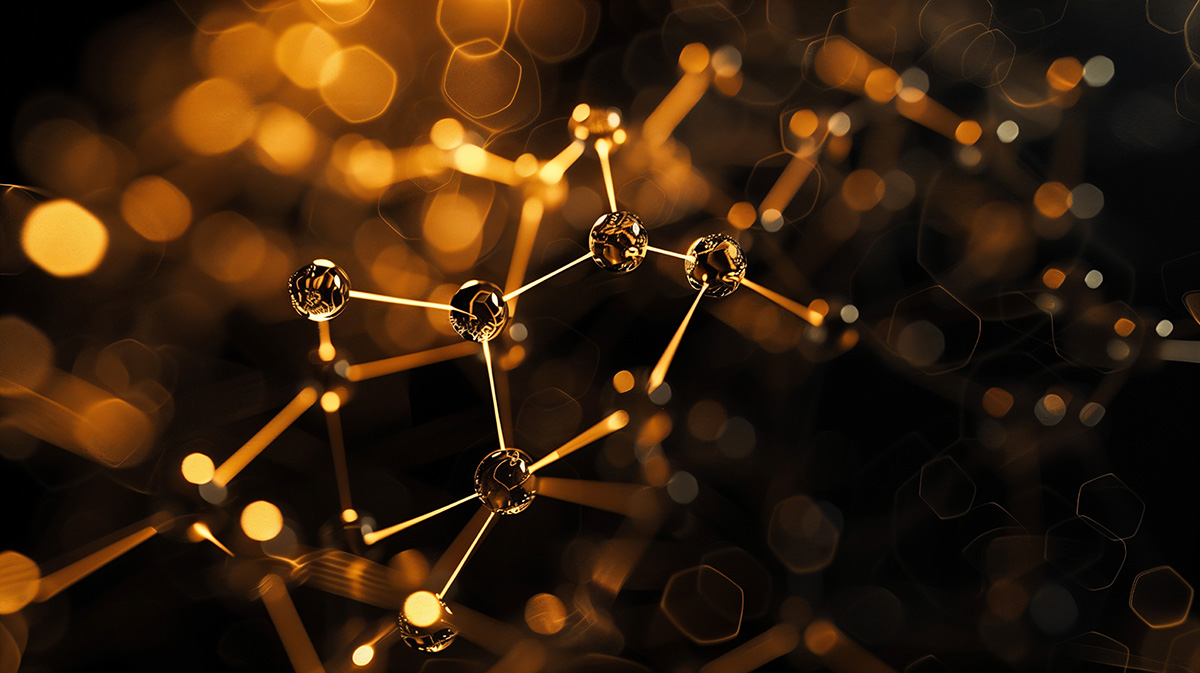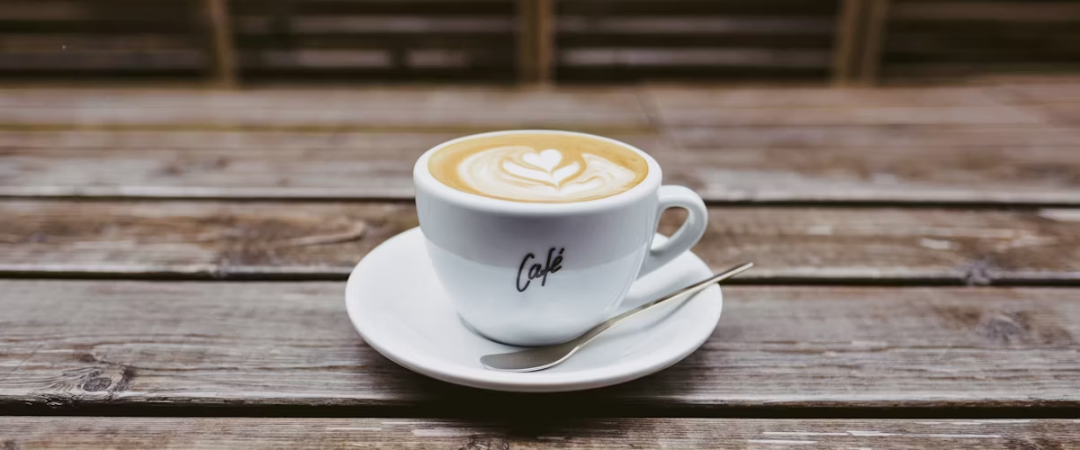There you are: you wake up in the morning, maybe a bit groggy from the night’s slumber (yawn); where’s that coffee?!
Or maybe it’s 3pm and you have two or three more hours of work – EEEEK!
How will you get through? Afternoon tea, chocolate, energy drink or more coffee? Anything that possesses that magical chemical called CAFFEINE!
Worldwide, we reach for caffeine to help alter our sleep/wake cycle, but how does it do that and is that the best idea in the long term? Is there another option?
A lot of my patients say, “but I only have one small cup in the morning”. Some admit, “I cannot function without coffee and I drink 5 cups a day…” then add “but it doesn’t effect me”. Still others say, “It’s the ritual and the taste that I love!”
Everyone has totally valid reasons to love caffeine. It tastes good, it’s a ritual, it’s a necessity, right? So, let’s break it down; what’s actually happening when you drink or eat caffeine?
The Effects of Caffeine on the Body

Adenosine
Let’s talk about Adenosine first. Adenosine is the by-product of cellular processes, and this molecule conducts the sleep/wake cycle; and caffeine looks just like it structurally. After you drink or eat caffeine, it gets absorbed by the small intestine and dissolved into the bloodstream. And since caffeine is both water and fat soluble, that means it can penetrate the BBB (blood brain barrier) and enter the brain. While it’s in the brain, it neatly fits into the brain cells’ receptors that are available for adenosine (remember because they look alike), essentially blocking them, which creates a sense of alertness and energy for a few hours – maybe even up to four.
So regardless of your natural circadian rhythm, you ‘wake up’ from the caffeine. In addition to that, two other things start happening. The pleasure center in the brain gets pinged and dopamine gets released, which makes us alert, focused, motivated and happy. And secondly, since we have all this extra adenosine floating around the brain, that signals your adrenal glands to secrete adrenaline, which is yet another stimulant. It’s a triple threat!
Scientists say that caffeine isn’t just a stimulant on it’s own; “a stimulant enabler, it’s a substance that lets our natural stimulants run wild”, says Stephen R. Braun, the author of Buzzed: the Science and Lore of Caffeine and Alcohol.
Dopamine
Dopamine is released when your brain is expecting a reward or has what it perceives to be a reward. When dopamine is released we feel awake, focused and happy. Yes, caffeine or even alcohol can be a reward, but only because we have trained our brain to believe that is the truth; remember, I said “what it perceives to be a reward”.
To understand the dopamine release better, let’s talk about Skinner’s Box. Back in the 1950s, a scientist named Skinner put electrodes in the feeling centers of rats’ brains and sent a little shock to the area when a rat entered a particular corner of the box; the theory was if the shock was painful enough, the rat would stay out of that corner: enough shocks and the rat’s brain would hardwire the corner as adverse. Yet when the electrode was placed in the nucleus accumbens, which is a dopamine pathway, the rats did just the opposite; hungry for more and more dopamine release, they returned to the corner again and again, up to 700 times per hour! They even chose the stimulation over food.
So the thing to consider is: are we like Skinner’s rats – have we hard wired our brains to think caffeine is all that, or can we get a dopamine hit from somewhere healthier?
Another interesting thing to know is that dopamine doesn’t just get released when that ‘thing’ pings that area of the brain, but that dopamine starts getting released when we are merely thinking or anticipating the reward. Meaning as soon as we start to think about having the coffee, the happy hour cocktail or smell fresh bread while walking past the bakery, our brains are already releasing dopamine; essentially tricking us, because when we get it, we are even more excited and think this is the thing that makes me happy! Which of course is not the truth.
Dopamine or the dopamine reward system isn’t the problem; the problem is how we stimulate the dopamine pathway. The things that stimulate the pathway can run the gamut; caffeine, alcohol, drugs, cigarettes, falling in love, sex, Netflix, pornographic videos, shopping, gambling, yoga, meditation, healthy eating, etc. Some of these things can be viewed as ‘positive’ and others ‘negative’ if you will, but really anything in excess can be harmful. So if we can make anything light up our dopamine pathway, so why not choose the good stuff?
But is Caffeine Really That Harmful?
The obvious risk is because caffeine is habit forming. Over time, the brain’s chemistry and physical characteristics actually change and you are no longer accessing your body’s natural energy resources. The most notable change is that brain cells actually grow more adenosine receptors. It’s the brain’s masterful way to maintain equilibrium in the constant onslaught of caffeine. It explains why regular coffee drinkers build a tolerance over time; since it takes more caffeine to keep up with the body making more adenosine receptors, it takes more caffeine to reach the desired effect.
Maybe it’s not so much of the what the harm is, as much as it is – what we are giving up by being a slave to caffeine?
What Are the Symptoms of Caffeine Withdrawal?

When patients decide to quit caffeine for good or temporarily, the sudden giving up of caffeine can trigger a whole slew of symptoms. The most common symptoms are fatigue and headaches, which make complete sense. Basically, your brain is used to operating in one set of conditions that depend on caffeine and now that’s gone. So, there is now a surplus of adenosine neatly tucked back into their receptors, a decreased number of norepinephrine receptors, no dopamine, no adrenaline, no trifecta or triple threat.
Where the body was used to caffeine actually narrowing the blood flow to the brain, without it your blood vessels widen, resulting in a boost of blood flow that is causing pressure, which is causing a headache. Other symptoms that may occur are depression, anxiety, lack of focus and irritability – all symptoms of your body protesting. Sometimes dull aches and pains, nausea or flu like symptoms may occur as well.
You’d think we were talking about kicking a hard drug, but no – it’s ‘just’ caffeine!
80% of Americans drink it; it’s so woven in the fabric of America so much so that we forget it’s a drug and the world’s most popular psychoactive one. Back in 1994, scientists finally established that caffeine withdrawal be included as a mental disorder in the 5th edition of the Diagnostic and Statistical Manual of Mental Disorders. So, it’s not ‘just’ caffeine.
How Long Do Caffeine Withdrawals Last?
The good news is, compared to many drug withdrawals, the effects are relatively short-term. Most patients report about 5 days of discomfort, while some who were drinking 7 cups of coffee a day, reported discomfort for up to 14 days. During that time, your brain will naturally decrease the number of adenosine receptors on each cell, responding to the sudden lack of caffeine ingestion. If you can make it that long without caffeine, the levels of adenosine receptors in your brain reset to their baseline and the addiction is broken.
During one of our annual detox and elimination diet programs, we had a patient who was literally a slave to coffee. He was a 7 cup a day drinker. He did our program and abstained from coffee for 14 days. It wasn’t the easiest road for him, but in the end he reported not only did he have his energy back, but he no longer had digestive issues, was sleeping through the night for the first time in decades and felt balanced. He swore he would never go back and to my knowledge he hasn’t. Once he got through the initial withdrawal, he was able to assess with a clear mind that coffee was not doing him any favors.
Alternative beverage ideas
Many patients miss the ritual of something hot in the morning. So for you coffee lovers, my patients have loved Chicory root. It has zero caffeine, contains inulin, a prebiotic that helps promote gut health and reduces inflammation. Also in a 2017 research study, chicory was found to help improve blood sugar in rats with Type 2 diabetes after eight weeks. Sometimes chicory is blended with coffee at coffeehouses so it’s a great way to cut your intake in half if that’s what you’re up for. You can also purchase chicory by itself and make it at home. One thing to note, women that are pregnant or breastfeeding should avoid chicory altogether.
There are also many other alternatives using mushrooms, adaptogens and cacao. These are all great options, just make sure you read your labels to see if there is added caffeine or coffee in them.
For tea lovers, of course there are endless herbal tea options – from simple chamomile to eccentric red raspberry leaf. Keep in mind that Rooibos Red Tea is naturally caffeine free, and White Tea, which has tons of cancer fighting properties, clocks in at a low 25 mg per cup.
So, you’ve made it this far. Now that you are privy to this information, what will you decide for yourself? No choice is right or wrong, just a choice, and now that you are armed with this information you can make an educated choice.
One more pearl of wisdom, if you have any trouble sleeping, which means number of hours, quality (not enough REM or Deep) or not sleeping through the night, I would suggest you omit caffeine for one month and see how that impacts your sleep pattern and circadian rhythm. Most people think that caffeine stays in the body for maximum 4-6 hours and while on some level that may be true, it is still metabolizing for up to 10 hours! So if you are having a 3pm espresso, you could be impacting your sleep until 1am. Think of it as gathering information, because sleep is one of the most important things you can do for overall health and longevity.





